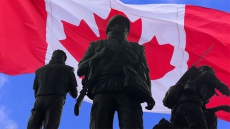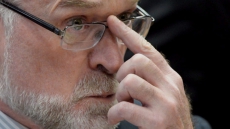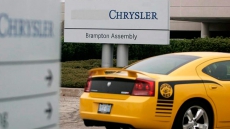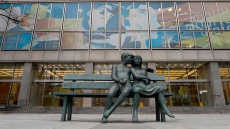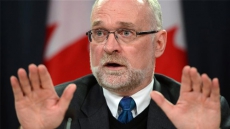OTTAWA — The Supreme Court of Canada has rejected an appeal from a Canadian pilot who claimed he was discriminated against by Bombardier Inc., based on his race.
But in its unanimous decision released Thursday, the high court also warned Canadian companies they cannot "blindly" obey the judgment of a foreign authority without exposing themselves to claims of discrimination.
In the case brought by Javed Latif, all seven justices who heard the appeal sided with Montreal-based Bombardier, declaring that the company did not discriminate against Latif, a Canadian of Pakistani origin, when it denied him a training course on one of its jets.
It's the first time the high court has heard a discrimination case based on allegations of racism stemming from a decision made by a foreign authority.
In 2004, Latif had applied, using his U.S. pilot's license, to take a training course offered by Bombardier in Texas after he was offered a job to pilot a Challenger 604. At the same time, he applied for a security check as required by the U.S. Alien Flight Students Program.
He had held a U.S. pilot's license since 1991 and had been flying for nearly five decades.
He had also been previously granted security clearance to train to fly a Boeing 737 for Mid East Jet.
But in April 2004, Bombardier was notified that Latif had been denied permission to take the course, under aviation security measures that had been adopted in the wake of the Sept. 11, 2001 terrorist attacks.
Latif then requested the training from Bombardier using his Canadian pilot's license, but they rejected his request on the basis of the U.S. decision.
He took the case to the Quebec Human Rights Tribunal, saying he was discriminated against based on race.
The tribunal agreed and Bombardier was ordered to pay damages worth about $320,000.
But the Quebec Court of Appeal rejected the order, saying there was no evidence other than circumstantial that U.S. authorities denied Latif the ability to take the flight training course based on racial profiling.
The Supreme Court said that while it agreed there was no proof Bombardier racially discriminated against Latif, Canadian companies should still be careful when following the edicts of authorities outside of Canada.
"We wish to make it clear that our conclusion in this case does not mean that a company can blindly comply with a discriminatory decision of a foreign authority without exposing itself to liability under the Charter," said the ruling.
"Our conclusion flows from the fact that there is simply no evidence in this case of a connection between a prohibited ground and the foreign decision in question."
Latif was never formerly told the reasons for the denial, although he testified that an American Transportation Security Administration official revealed that there had been an "identification error."
Four years later, the United States Justice Department lifted the restrictions — again, without explanation.
In the meantime, though, Latif had to change jobs several times and was at one point unemployed.
